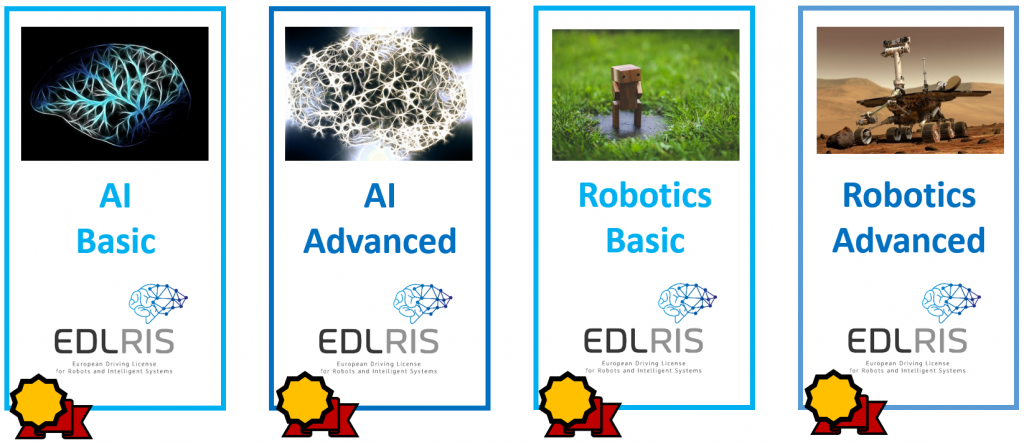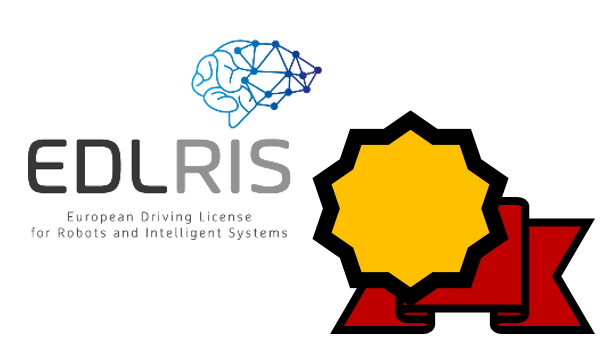EDLRIS comprises 4 modules for trainers and trainees:

- Artificial Intelligence (Basic)
- Artificial Intelligence (Advanced)
- Robotics (Basic)
- Robotics (Advanced)
Each module can be done independently of one another.
The Basic AI and Robotics modules focus on people without any prior knowledge in these areas. The goal is to build awareness, to motivate, to introduce principles of AI and Robotics in an easily accessible manner in order to be able to live and work with the technology.
The Advanced AI and Robotics modules are primarily aimed poeple who already have prior knowledge in computer science, mathematics and physics. The goal is to enable a deeper understanding, to understand fundamental ideas and to foster people’s ability to implement simple AI and Robotics applications.
Certification
The certification system comprises validated certification questions (multiple-choice questions, interactive tasks) for each of the modules in order to prove trainers’ and trainees’ AI and Robotics skills acquired through the training. The certification ensures that these competencies and skills are recognized by educational institutions and industry. Certifications are conducted at partner institutions and usually take between 1 and 2 hours per module. The certification is issued by the Austrian Computer Society OCG and the John von Neumann Computer Society.
The training and certification system is integrated into a unified Moodle learning management system.

Course structure
Courses are structured according to the blended-learning approach:
- 30-40h (3-5 days) of face-to-face (F2F) units at partner institutions
- 20h-50h online units (guided online session)
- during the last face-to-face unit of each course participants complete the certification (final exam)

Methods and tools
Courses have a strong focus on hands-on activities based on the principles of constructionism. All modules comprise a broad mix of teaching methods and tools:
- blended learning
- flipped classroom
- competency-based, student centered
- problem-/project-based learning
- discovery learning
- teamwork
- active plenum
- group discussion
- attentive micro lecture
- whole brain teaching
- computer science unplugged
- educational robotics
- simulators
- logic puzzles
- programming
- station work
- online exercises
- online learning management system Moodle

